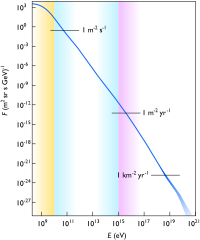
Photo from wikipedia
The World Bank has often been condemned for serving Western economic interests by spreading neoliberal economic ideology to “developing” countries. Aligned with this approach, the Bank has supported a great… Click to show full abstract
The World Bank has often been condemned for serving Western economic interests by spreading neoliberal economic ideology to “developing” countries. Aligned with this approach, the Bank has supported a great deal of quantitative school effectiveness research in attempts to identify cost-effective investments in education systems. Research output in this field now numbers well over 10,000 publications. They often measure effectiveness through the various international testing regimes, such as PISA, which are also the subject of controversy (Guthrie 2011, 2018; Tabulawa 2013; Wedell and Grassick 2018). Notable for their usual absence in school effectiveness research are attempts to assess the impact of culture on schooling, including cultural epistemology and intergenerational culture, which provide cultural grammar for teachers and students alike. What actually happens in the classroomhas been a source of confusion, such that it is sometimes referred to as “the black box.” Comparative educationalists from the classroom improvement field are, of course, suitably astounded by this label given that there are hundreds of classroom improvement studies, usually using qualitativemixedmethods that often include ethnographic or semistructured classroom observation of teaching styles. In contrast, where school effectiveness studies do include classroom observation, the variables are often so disaggregated that they lose sight of the bigger picture of teaching styles and their underlying cultural elements. Controversially, a commonality in the two fields is that they almost invariably base judgments about teachingquality on the variously labeledAngloAmerican progressive, child-centered, knowledge construction paradigm. Measurement is scarce of teaching techniques that are culturally validated in developing countries, where formalistic, teacher-centered, knowledge transmission pedagogy is prevalent for revealing given truths, scientific and religious. For over 60 years, progressive reforms have been unsuccessful in
Journal Title: Comparative Education Review
Year Published: 2019
Link to full text (if available)
Share on Social Media: Sign Up to like & get
recommendations!